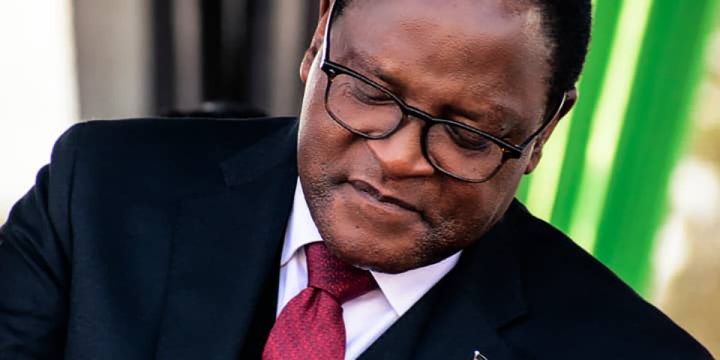OP-ED
Malawi 2020: A beacon of hope for African opposition parties

Opposition parties across sub-Saharan Africa should sit up and take notice. Malawi has set a blueprint for taking on dominant, repressive, corrupt, and authoritarian governing parties.
Malawi’s election last week is momentous. In a region where opposition election victories are relatively rare, Lazarus Chakwera’s election as Malawi’s new president is a promising disruption to the status quo.
Last Tuesday, Malawians headed to the polls for the second time in just over a year after the country’s Constitutional Court invalidated the first election, held May 2019. Their ruling followed numerous irregularities in the original poll, most notably the use of correction fluid (Tippex) to change vote totals on counting sheets.
Withstanding considerable pressure in the form of intimidation and alleged financial inducements, judicial independence held firm and a date was set for an election re-run. On Saturday, the official results were declared. Opposition candidate Chakwera comprehensively defeated incumbent President Peter Mutharika, obtaining 58.57% to Mutharika’s 39.40%. On Sunday, Chakwera was formally sworn in as the country’s new president.
The primary factor behind the opposition’s stunning victory was unity. It started with the Malawian people who demonstrated the power of citizen solidarity when they took to the streets of Lilongwe in 2019 to protest peacefully against the results of the original rigged election. Opposition parties formally challenged the flawed election in court and the results were duly set aside.
Then, following the Constitutional Court decision and heeding the nation’s desperate desire for change, Malawi’s opposition parties banded together to form the broad “Tonse Alliance”. This coalition united the two main presidential candidates, Lazarus Chakwera of the Malawi Congress Party and Saulos Chilima of the United Transformation Movement. Buoyed by unity, the alliance set about running a dynamic campaign founded on message discipline, digital savvy and solid organisation. They proved unafraid to take their campaign to the governing party’s strongholds.
As notable as the opposition’s victory was its scale, nearly a 20-point margin. Former President Mutharika and his party claimed irregularities, but the opposition’s margin made it undeniable that Malawi’s voters had opted for change.
Opposition parties across sub-Saharan Africa should sit up and take notice. Malawi has set a blueprint for taking on dominant, repressive, corrupt and authoritarian governing parties. It is not rocket science. Main opposition parties should come together, cast the egos of their leaders aside, and work out a path to victory that combines their strengths into an unstoppable force for change. They will often find more in common than they might think.
Critically, they will discover a realistic path to victory. They may also discover that donors feel more comfortable backing a campaign that has the prospect of winning. Resources, both human and financial, flow to parties that show the maturity to unite and the ability to deliver a compelling message of change and hope.
In countries such as Uganda and Tanzania, the fundamental struggle is that between freedom and authoritarianism. Without fundamental human rights in place and the necessary democratic space, ideological debates are virtually irrelevant. Defeating the incumbent authoritarian is what matters.
Sub-Saharan Africa faces some key elections in the next few months where the Malawi blueprint could prove effective, including in Tanzania (October) and Uganda (February 2021). Current presidents Magufuli and Museveni, both authoritarian and repressive, are counting on opposition disunity on top of their standard anti-democratic tactics to ensure re-election. They could be surprised to find their route to re-election blocked if they encounter united oppositions led by one presidential candidate.
Many party leaders and commentators will cite ideology as a stumbling block to opposition election pacts and coalitions. But where the future of civil and political rights is in question and authoritarianism reigns, surely the first priority is securing freedom and democracy.
In countries such as Uganda and Tanzania, the fundamental struggle is that between freedom and authoritarianism. Without fundamental human rights in place and the necessary democratic space, ideological debates are virtually irrelevant. Defeating the incumbent authoritarian is what matters.
The Malawi election also showed the importance of a strong domestic election observer mission. The Covid-19 pandemic prevented international organisations from sending out significant observer missions, typically viewed as necessary in Africa to guarantee free and fair elections.
To overcome this challenge, civil society mobilised to monitor both the voting and counting processes, creating a unique and powerful domestic observer process. There were some reports of citizens actually accompanying ballot boxes being transported to polling stations in order to prevent any tampering. Despite a few reports of intimidation on both sides, the voting and counting proceeded peacefully and with due process.
Precautions were taken against Covid-19: election officials were provided with face masks and hand sanitiser, one-metre gaps between voters were encouraged and voters were encouraged to bring their own pens to mark their ballots. Even with these steps, turnout, at about 65%, was down about 10 points from 2019’s election, possibly due to Covid-19 fears.
Malawi has demonstrated that advocates for democracy and change in Africa can accomplish a great deal themselves, even in the face of authoritarian rulers, pandemic, and economic contraction. Creating unity among opposition parties, pressing for fair elections, mobilising domestic observers – these and other steps show that democratic revival and change is possible in sub-Saharan Africa. Tanzania and Uganda, it’s over to you now. DM
Jonathan Moakes is vice president at GQR London. He is former chief executive and chief strategist for the DA.


















 Become an Insider
Become an Insider